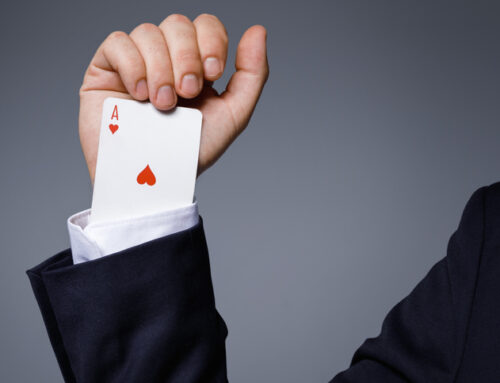How to Prepare Yourself to Give the Performance of Your Life
It’s a Mental Game — What separates good athletes from extraordinary athletes is often their ability to perform in high pressure situations. “The key difference between those who get the Gold medal and those who don’t is between the ears,” says Martin Turner.
Turner has taken the knowledge he’s gained from studying athletes’ performance and figured out how business leaders can apply similar skills to high pressure situations. Whether it’s meeting with a high profile client, or responding to a media interview, Turner says, “Business leaders can learn to develop robust psychological skills to help them fulfill their potential under pressure, and importantly, help others around them fulfill their potential.” In both sports and business, people who are able to use their mind as a valuable weapon beat out the competition when performing under pressure
Performing in High-Pressure Situations
Ever wondered why some people thrive under pressure while other people seem to crumble? Turner says it’s all in the way we initially respond to stress. The initial response to stress occurs unconsciously and automatically based on our initial rapid evaluation of the situation. Some people are able to respond in a manner that helps their performance, known as a challenge state. But, other people enter into a threat state, which hinders their performance.
Crumbling Under Pressure
If you think back to times when you haven’t been successful, you may recall that you likely felt worried and uncertain prior to your performance. The fear of failure, or concern about making a bad decision, can cause us to overthink the situation.
When you enter into a high-pressure situation, it’s important that you’re able to focus on the task. If you’re so busy worrying about how you’re going to perform, you’ll waste essential brain power. Ironically, one of the ways most of us try to approach a stressful situation is by telling ourselves, “Don’t mess up,” or “Don’t fall.” However, saying, “Don’t fall,” actually increases the chances that you’ll fall. “A vast amount of research shows that telling yourself not do something actually – and ironically – increases the likelihood of doing it,” says Turner.
Clearly, it takes some extra effort to get our body into the right state so we can perform optimally. “How the body reacts under pressure is dictated by the mind,” explains Turner. Entering into a stressful situation with a positive mental approach leads to a challenge state. But, if you approach a tough situation with negativity, you’re more likely to enter into a threat state.
Successful people are able to thrive because they enter into high pressure situations in a challenge state. The good news is, we all have the ability to do this.
3 Ways to Perform Better Under Pressure
Turner says the only way to meet the demands of a high pressure situation is to have “the resources.” The resources include a variety of skills that can greatly enhance performance under pressure. “Pre-performance routines condition the mind to react well to pressure” explains Turner. Here are just a few resources people use to get themselves mentally prepared:
1. Imagery – Sometimes, before a big event, we imagine ourselves failing miserably. We picture the worst-case scenarios and visualize embarrassing ourselves beyond recovery. Of course, focusing on a terrible outcome during the days, hours and minutes leading up to your “big moment” isn’t helpful. In fact, doing so can be very detrimental to your performance. So instead of imaging negative outcomes, Turner recommends using imagery (or visualization) in a positive manner. He suggests recreating past performance or rehearsing future performances in your head. The imagery should be made a realistic as possible by including sights, sounds, feelings, and even smells. Visualize yourself performing well in an upcoming presentation or interview over and over again. Visualizing a successful performance instills confidence in your ability to perform at your best.
2. Self-Talk – The conversations you have with yourself leading up to and during your performance will influence how you behave. If a speaker spends the five minutes before he goes on stage thinking, “I’m going to fail,” and “People are going to see how nervous I am” he’ll increase his anxiety and his body will respond accordingly. A racing heart and sweaty palms certainly won’t make his speech any better. And if he’s still repeating those things to himself during the speech, he’ll have less brain power available to focus on his presentation.
To enhance your performance, Turner suggests structuring self-talk in a way that will help you enter the situation feeling more positive. For example, an athlete may use three key phrases – “be strong,” “focus on success,” and “give something,” prior to a competition – so they can get mentally prepared for the challenge. These phrases can help her stay focused on success while also staving off negative thoughts of potential failure.
3. Pre-Performance Routines – The way you spend your time right before a big performance will influence your chance of success. If you choose to spend your time pacing around the room nervously you may increase your anxiety level to the point that it threatens your ability to perform optimally, for example. Creating a routine that will get your head in the game helps you to be better prepared.
Source: Martin Turner is a sport psychologist and expert in human performance under pressure.






